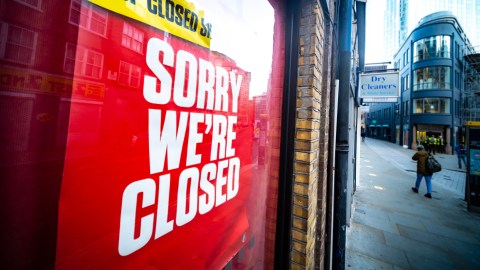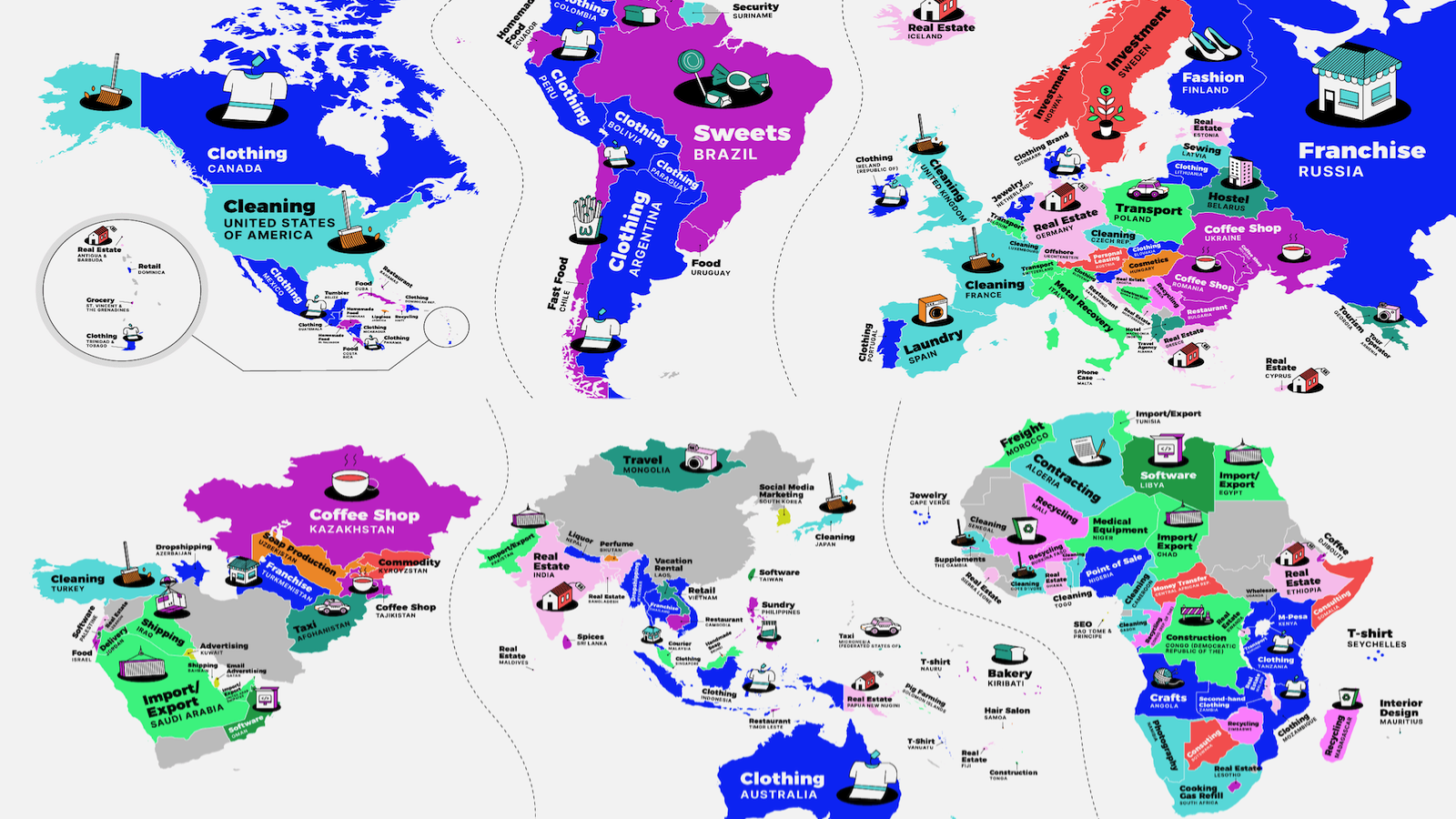No, 90% of new businesses don’t fail. Here’s why.

- We have a collective problem with the concepts of success and failure, in part because we let others define those concepts.
- When we cannot define success for ourselves, we will struggle against unattainable goals. Or, we might just never try anything new.
- To say that something failed, simply because it stopped or changed, is to dangerously limit our view of the world.
Adapted from Build for Tomorrow copyright © 2022 by Jason Feifer. Used by permission of Harmony Books, an imprint of Random House, a division of Penguin Random House LLC, New York. All rights reserved. No part of this excerpt may be reproduced or reprinted without permission in writing from the publisher.
As we begin our journey into the New Normal, let’s start with that first word: new.
What does it mean to try something new? For many people, it means risk and the potential of failure. That’s why, in the world of business, you’ll often hear this claim: Nine out of ten new businesses fail.
I’m asked about this statistic all the time. It doesn’t matter if you plan to start a business or not—that number still sounds terrifying. It seems like proof that most new ideas are bad, and that most people who chase their dreams will regret it. It suggests that you should stay put, like a prairie dog in its hole, because risk is not rewarded.
Don’t believe any of that. The statistic is wrong—by the numbers, and more important by its definition of fail. Once you see how it’s wrong, you’ll also start to see the concept of “new” itself differently.
First, the facts: About half of businesses survive their first four years, according to the U.S. Census Bureau. Does that mean the other half failed? No. At the time that they closed, about a third of those businesses were successful. “It appears that many owners may have executed a planned exit strategy, closed a business without excess debt, sold a viable business, or retired from the work force,” the study says. In other words: Just because a business ends, that doesn’t mean it ends badly.
It’s unsurprising that we’d conflate these ideas, though. We have a collective problem with the concepts of success and failure—so let’s dig into what’s going on there for a moment before returning to the idea of business failure.
“We’ve defined success at a societal level so narrowly,” says Harvard professor Todd Rose. He spoke with an Entrepreneur colleague of mine for a story we ran about the skilled-trade labor shortage in America. Stable, well-paying jobs as electricians and plumbers are going unfilled, because so many people were raised to believe that college and subsequent white-collar jobs are the only true definition of success. “What worries me,” Rose said in the story, “is that many people are forgoing the kind of training that would actually lead to a more secure and fulfilling life in order to play a game they don’t even want to play but think they have to.” What underlies this problem? Rose has an interesting way to illuminate it. In addition to his work at Harvard, he’s also the cofounder of Populace, a social impact think tank, and his group did a study of how Americans view their ideal lives. Most respondents said they value relationships and fulfillment over fame and money. But when asked if other people share their views, most respondents said no. They believed that most Americans are the opposite of them, and value fame and money over relationships and fulfillment.
That’s a remarkable disconnect! Most Americans have the same exact values, but they also believe that they are alone in these values. They are literally alone together, living in the majority while believing they’re in the minority. As a result, Rose says, people tend to stay quiet about their own values—which allows a smaller number of loud voices, like pundits and TV stars and a small group of “experts,” to define success and failure for us.
This is problematic. When we cannot define success for ourselves, we will struggle against unattainable goals—or perhaps never try something new at all.
Here’s a small but telling example. Whenever I speak with aspiring podcasters, they always ask a version of this question: “How many downloads do I need to be successful?” Here’s what they’re really saying: Please tell me what success looks like, so I can decide if I can achieve that or not. But there is no answer to this! There is no single way to be a “successful” podcaster. Sure, Tim Ferriss gets hundreds of millions of downloads, which means his show earns him gobs of money, and that is one obvious way to measure success. But success can take many other forms. Some podcasters have no interest in reaching millions of people; they just want to reach the right people. For example, my friends Hanna Lee and Michael Anstendig run a PR agency that’s focused on the hospitality and travel industry, and I helped them start a podcast, Hospitality Forward, about how these industries can earn media attention. Their episodes only get hundreds of listens—but about two months after launching, a gin distillery heard the show, reached out, and hired them to do PR work. More connections followed. Listeners began sharing how the show helped their business. To my friends, that made the podcast a success.
Is something a success or failure? That depends on how you measure up against your goal, not someone else’s. Never ask what success looks like. It looks like whatever you want.
With that understanding, let’s now return to that bogus statistic: Nine out of ten new businesses fail.
Even if the stat were true, we would still need to define the word fail. If a business truly does fail—if it ran out of money, laid off its staff, and totally crashed and burned—is that a failure? Maybe . . . but maybe not! Great businesses have been built out of the lessons from failed ones. YouTube began as a failed dating site; Twitter began as a failed podcast platform called Odeo; Instagram began as a failed app to help plan meetups called Burbn.
This is not just true for companies. The most successful people in the world have told me that they attribute their successes to their failures. Tennis champion Maria Sharapova said she gets frustrated when people think she’s just innately good at things; the peak of her career came as a result of decades of failure, she says, and it taught her to align with people who could navigate those downsides along with her. “I hired people I could lose with—who I’d be comfortable losing with—because they’re who would give me the best support,” she told me. “If they’re people you’d want to be with when you lose, then I’m sure you’ll be able to celebrate well with them.” Meanwhile, Michael Dell, the billionaire founder of Dell Technologies, literally keeps mementos in his office from his company’s past failures, because they represent hard-earned lessons to him. “That painful lesson helped us develop a tremendous capability that propelled us way further than we’d ever imagined,” he told me.
To say that something failed, simply because it stopped or changed, is to dangerously limit our view of the world. Even if 9 out of 10 businesses fail, we could not say that 9 out of 10 entrepreneurs fail.
I know this can sound trite. There’s a wonderful quote attributed to IBM founding chairman Thomas J. Watson that goes, “If you want to succeed, double your failure rate.” But Watson probably didn’t say that while he was failing. Failure is only glorified in retrospect.





